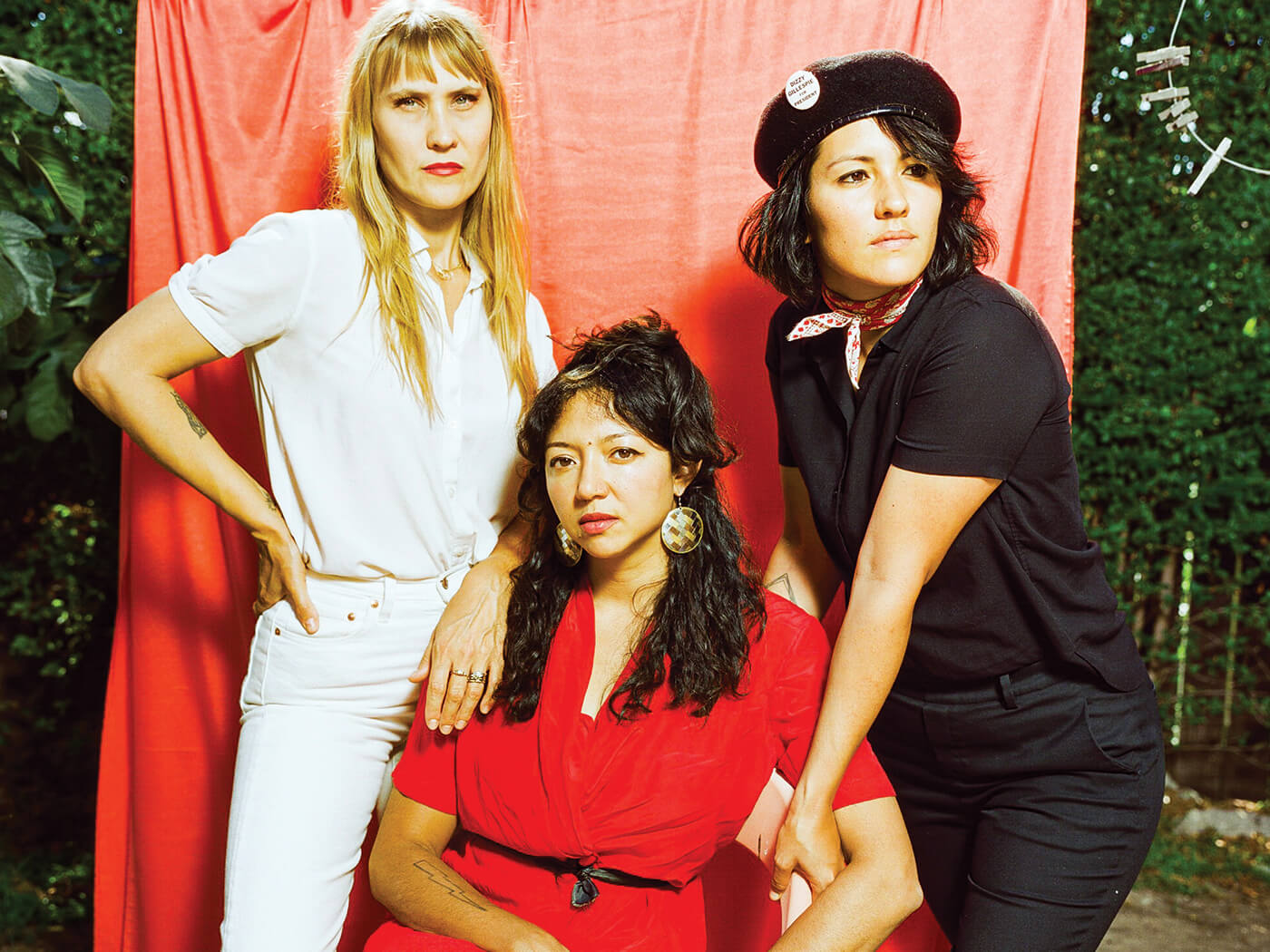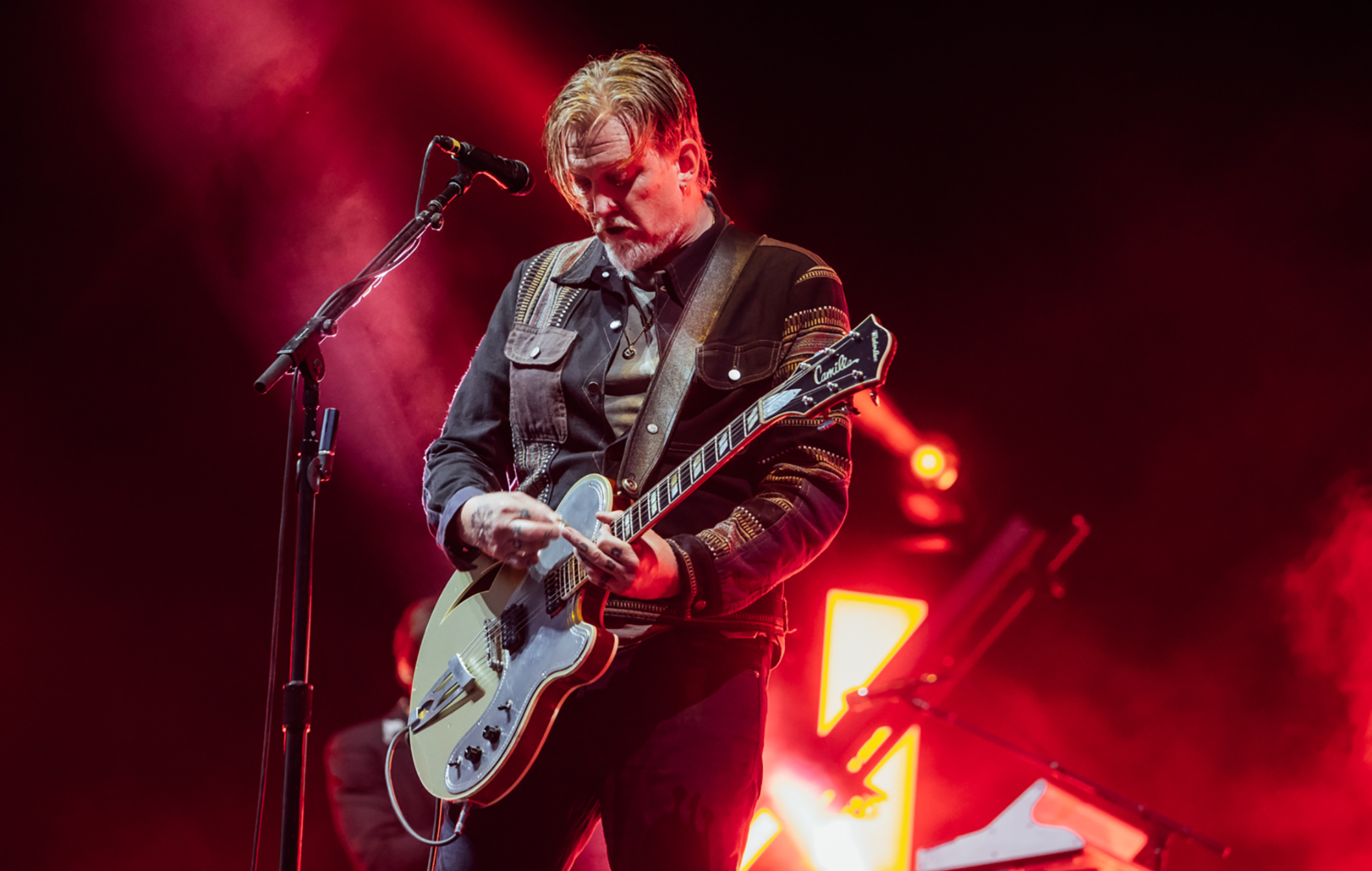
Some artists don’t need producers – picky auteurs, say, or those who pride themselves on undiluted communication, warts and all. For everyone else though, a producer remains a crucial part of musical creation, one that can make the difference between a good and a great record.
- ORDER NOW: David Bowie is on the cover of the December 2021 issue of Uncut
La Luz, formed in Seattle a decade ago but based in California since 2017, have made especially strong choices with their studio collaborators. For their second album, 2015’s Weirdo Shrine, they enlisted Ty Segall to energise their grimy garage-surf; he set up a makeshift studio in a friend’s surfboard workshop to bring echoey lo-fi gallops like You Disappear and Black Hole, Weirdo Shrine to life. Dan Auerbach came on board for 2018’s Floating Features, and made their beats tighter and crisper, their organs fuzzier and their music more three-dimensional.
Returning now with their self-titled fourth album, they’ve bloomed into Technicolor with the help of Adrian Younge, the producer and composer seemingly enamoured of the same retro sounds as La Luz. Shana Cleveland’s guitars still clang and warp in homage to the surf instrumentalists she loves, especially on the rushing The Pines and Metal Man, but there’s a more extreme psychedelic feel to many of these tracks. The low-slung funk of Watching Cartoons, for instance, features a starry-eyed, patchouli-scented electric sitar solo. That sound is scattered subtly throughout the rest of the record too, much in the manner of Unknown Mortal Orchestra’s use of the instrument.
Keyboards abound on La Luz: Mellotrons gurgle alongside vintage compact organs, and Goodbye Ghost powers along at a breathless garage pace until it staggers to a halt with the novelty cooing of a theremin. Elsewhere, the copious percussion – tubular bells and all – sounds as if it’s being beamed straight from the Gold Star Studios echo chamber. There are touches of the 13th Floor Elevators, The Free Design, even The United States Of America, in the glorious, high-energy fug the group create. In keeping with the practices of those bands, they completed basic tracking in less than two days and finished recording in two weeks.
Yet there’s another side to La Luz’s fourth album too, one much quieter and eerier. Little wonder, perhaps, after chief songwriter Shana Cleveland moved out to the uber-rural environs of Grass Valley in northeast California a couple of years back. There she completed her second solo album, 2019’s excellent Night Of The Worm Moon, and that record’s ghostly folk bleeds into the more hushed tracks here. These moments are also a perfect opportunity for Younge to show off his fine taste, production skills and the array of vintage instruments in his studio. Lazy Eyes And Dune comes on like a classic John Barry theme with its harpsichord arpeggios, excessive phasing and muted bass, with a touch of The Beatles’ Because thrown in for good measure. Oh Blue is a swinging ballad with girl-group poise, doo-wop harmonies and some gorgeous Mellotron flutes, while opener In The Country gently rolls before erupting into bluebottle fuzz guitar and kosmische synth twitters.
Cleveland became a mother in 2019, which has had a significant impact on the songs here, especially in the record’s more thoughtful half. Here On Earth is the most obvious hymn to the guitarist’s son, a lilting ballad that could have fitted in beautifully on The Velvet Underground’s self-titled debut. “Don’t worry now”, sings Cleveland, backed by her bandmates, “as the days fly by/Just remember I/Am here on Earth to love you”. If it could be cloying on paper, the chunky major chords, woozy organ and Wurlitzer keep it feeling pleasingly oblique.
The album ends with Spider House, a short instrumental reprise of Lazy Eyes…, fulfilling its destiny as retro credits music. As a whole, this is a record curiously out of time, neither tapping into any kind of zeitgeist nor harking back to one particular scene; rather, it stands apart, a kaleidoscopic yet subtle take on eclectic ’60s sounds. With a little help from Younge, La Luz may have made their first great record.






